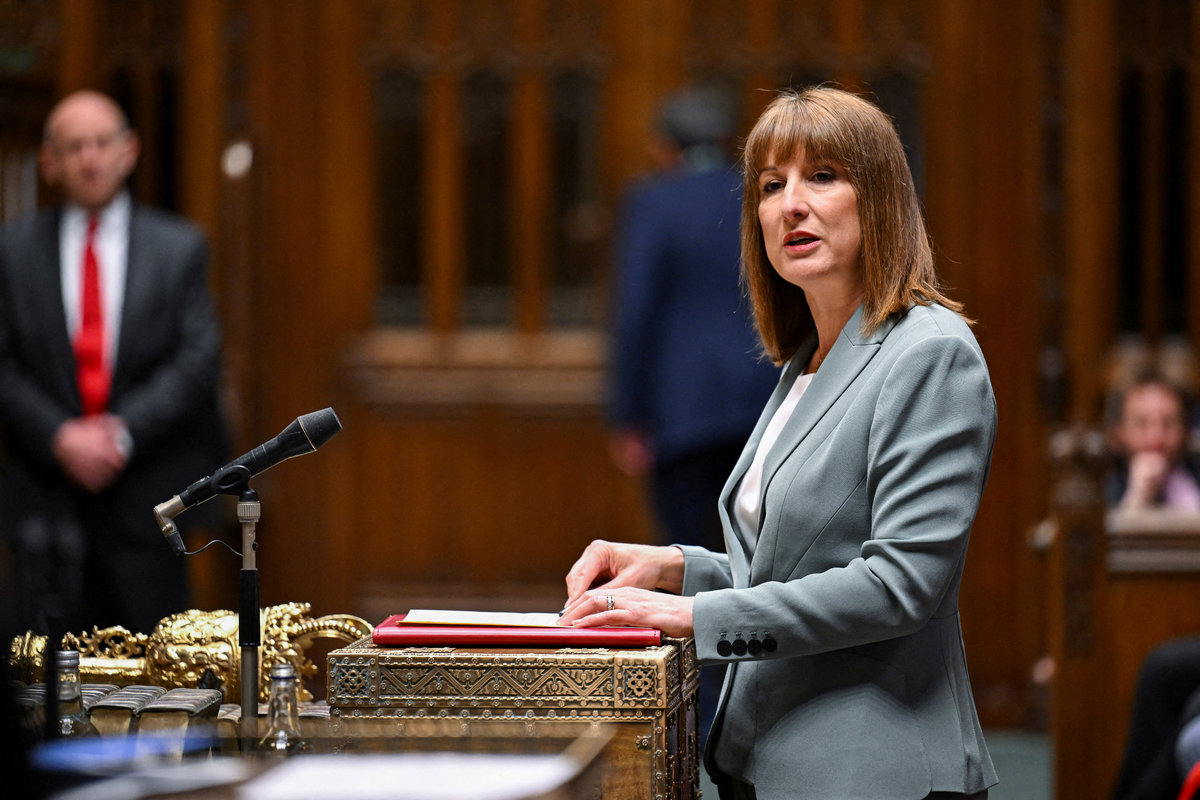LONDON: An influx of taxes paid by businesses put Britain’s budget deficit on track to meet official forecasts at the start of the 2025/26 financial year, welcome news for finance minister Rachel Reeves as she seeks to repair the public finances.
Official data on Friday showed public sector borrowing for May was 17.686 billion pounds ($24 billion).
While a Reuters poll of economists showed a median forecast of 17.1 billion pounds, the government has borrowed 37.7 billion pounds over the first two months of 2025/26 - less than the 40.7 billion pounds the Office for Budget Responsibility had predicted.
Reeves’ budget plans hinge on a tiny buffer against the government’s self-imposed fiscal rules - equivalent to less than 1% of annual spending - meaning they are vulnerable to even small shifts in the economic outlook.
While she is likely to take heart from Friday’s data, Reeves’ budget plans could yet be knocked off course by conflict in the Middle East and surging oil prices, weak business confidence in the wake of tax hikes, and global trade wars.
The Bank of England said on Thursday the underlying pace of economic growth was weak. Separate data from the Office for National Statistics showed British retail sales volumes recorded their sharpest drop since December 2023 last month.
“Borrowing was slightly better than expected in the first two months of the financial year, making the indicator a lonely amber light among the many red lights that are flashing with increasing rapidity on the government’s economic and fiscal dashboard,“ said Alison Ring, director of public sector and taxation at accountancy body ICAEW.
EARLY INDICATIONS
Friday’s figures from the ONS provided an early indication of the impact of a significant increase in employer social security payments - known in Britain as National Insurance Contributions - which took effect in April and are paid a month in arrears.
A major source of funding for the Labour government’s spending plans, the ONS said compulsory social security contributions in April and May combined were 30.2 billion pounds - a little less than the Office for Budget Responsibility predicted but still a record in cash terms.
Compared with the same period in 2024, social security contributions were up 17.5% - the biggest such rise in three years.
An ONS statistician warned that next month’s data was likely to show a “very high” debt interest payment, reflecting an increase in the gauge of inflation that underpins the compensation paid on index-linked government bonds.
The British government bond market has become increasingly volatile in recent years, reflecting unease among investors over Britain’s mix of slow economic growth, high debt interest costs and persistent inflation.
Last week Reeves set out a multi-year spending review which divided up more than 2 trillion pounds of public spending between government departments. ($1 = 0.7447 pounds)









